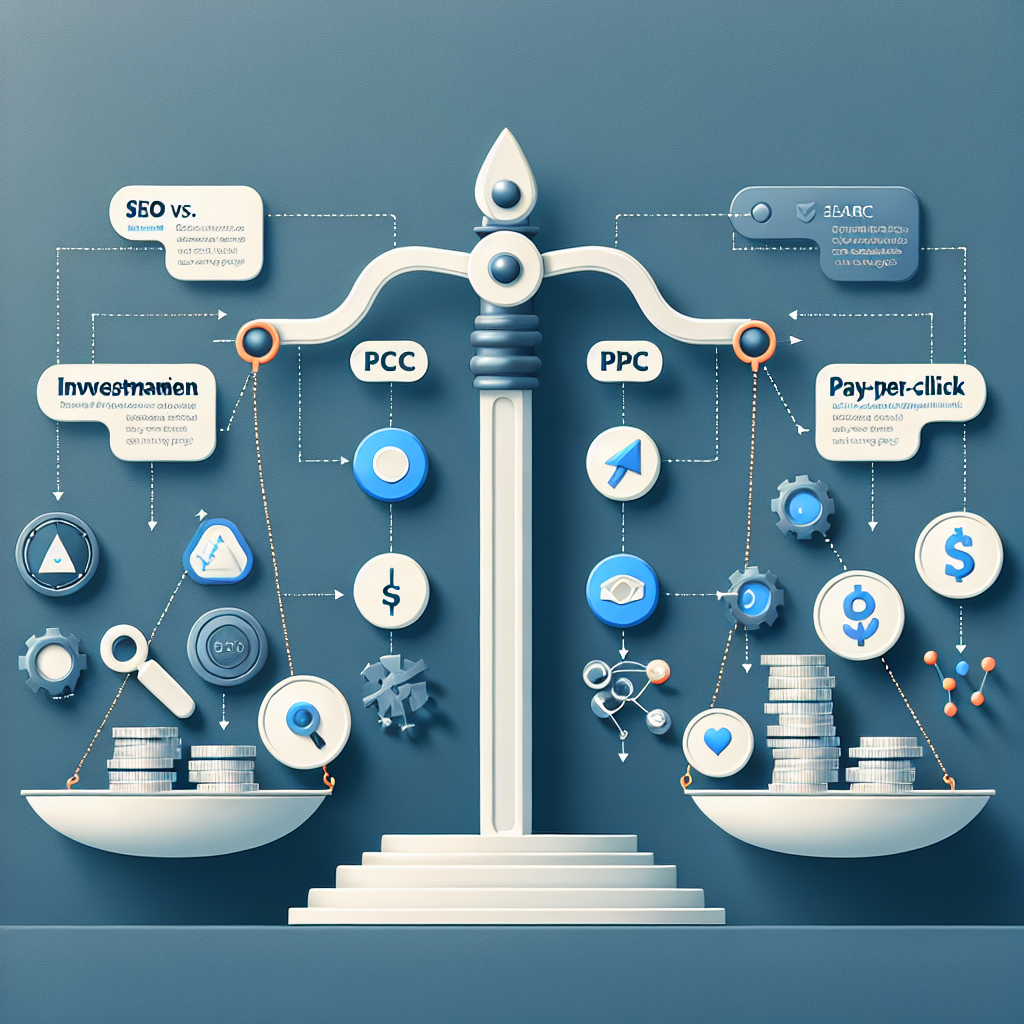In the fast-paced world of digital marketing, businesses often find themselves at a crossroads when deciding how to boost their online presence. Two prominent strategies that often come into consideration are Search Engine Optimization (SEO) and Pay-Per-Click (PPC) advertising. Both strategies have their distinct advantages and drawbacks, making it essential to understand their key differences, benefits, and ideal use cases. In this article, we’ll explore these aspects in detail to help you make an informed decision for your marketing strategy.
Understanding SEO
What is SEO?
Search Engine Optimization (SEO) is the process of enhancing your website’s visibility on search engines like Google. This is achieved through various techniques including keyword research, content optimization, link building, and improving website performance. The goal of SEO is to organically drive traffic to your website without paying for clicks.
Key Benefits of SEO
-
Cost-Effective: While there may be initial investments involved in creating quality content or optimizing your site, the long-term benefits of SEO can lead to sustainable organic traffic without continuous advertising spend.
-
Trust and Credibility: Users tend to trust organic search results more than paid ads, seeing them as more credible sources. A high ranking can enhance your brand’s reputation.
-
Long-Term Results: Once established, the effects of good SEO can last, leading to a steady stream of traffic over time. Your content can continue to attract visitors without recurring costs.
- Improved User Experience: Effective SEO involves enhancing the user experience on your website by making it faster, mobile-friendly, and easy to navigate.
When to Use SEO
- Long-Term Growth: If your goal is to build a sustainable online presence over time, investing in SEO is essential.
- Limited Budget: For startups and small businesses with tight budgets, SEO can be a feasible option, as it requires less ongoing expenditure compared to PPC.
- Niche Markets: If you’re in a competitive niche where ad costs are high, organic traffic may be a more viable route.
Understanding PPC
What is PPC?
Pay-Per-Click (PPC) advertising is a paid marketing model where advertisers pay each time a user clicks on their ad. Most commonly, this is seen in search engine advertising and social media platforms. Google Ads is perhaps the most well-known example, allowing businesses to bid on keywords relevant to their products or services.
Key Benefits of PPC
-
Immediate Results: With PPC, ads can start driving traffic as soon as they go live, making it a great option for campaigns that need quick visibility.
-
Targeted Advertising: PPC allows for sophisticated targeting options, including demographic, geographic, and interest-based targeting, ensuring your ads reach the most relevant audience.
-
Measurable and Adjustable: Campaigns can be closely monitored with analytics tools, allowing you to adjust bids, keywords, and ad copy based on performance metrics.
- Brand Visibility: Even if users don’t click on the ads, your brand still gains exposure at the top of search results, effectively increasing brand awareness.
When to Use PPC
- Short-Term Campaigns: If you have a seasonal promotion or new product launch, PPC can provide the immediate boost in visibility you need.
- Competing Keywords: In markets where keywords are highly competitive and expensive, PPC grants you immediate access to top positions in search results.
- Testing and Insights: PPC can be used to test different marketing messages and understand what resonates best with your audience before committing to a more extensive SEO campaign.
SEO vs. PPC: Choosing the Right Strategy
Key Differences
- Cost Structure: SEO is about investing in content and optimization upfront, leading to free organic traffic over time. In contrast, PPC requires continuous payment for every click, which can add up quickly.
- Time Frame: SEO is typically a marathon rather than a sprint. It may take weeks or months to see meaningful results. PPC, however, delivers immediate traffic once campaigns are launched.
- Longevity: Organic search results can retain visibility over time, while PPC ads stop generating traffic as soon as budgets are depleted.
Conclusion: Find Your Balance
In the battle of SEO vs. PPC, there is no one-size-fits-all answer; both strategies have their unique strengths and serve different purposes. If you aim for long-term, sustainable traffic growth, investing in SEO is crucial. On the other hand, if immediate results are what you need or if you want to test market trends, PPC could be your best bet.
Ultimately, many successful marketers find that a balanced approach, combining both SEO and PPC strategies, allows for the most effective digital marketing campaigns. By understanding when to use each strategy, you can better position your business for growth and success in the ever-evolving digital landscape.


